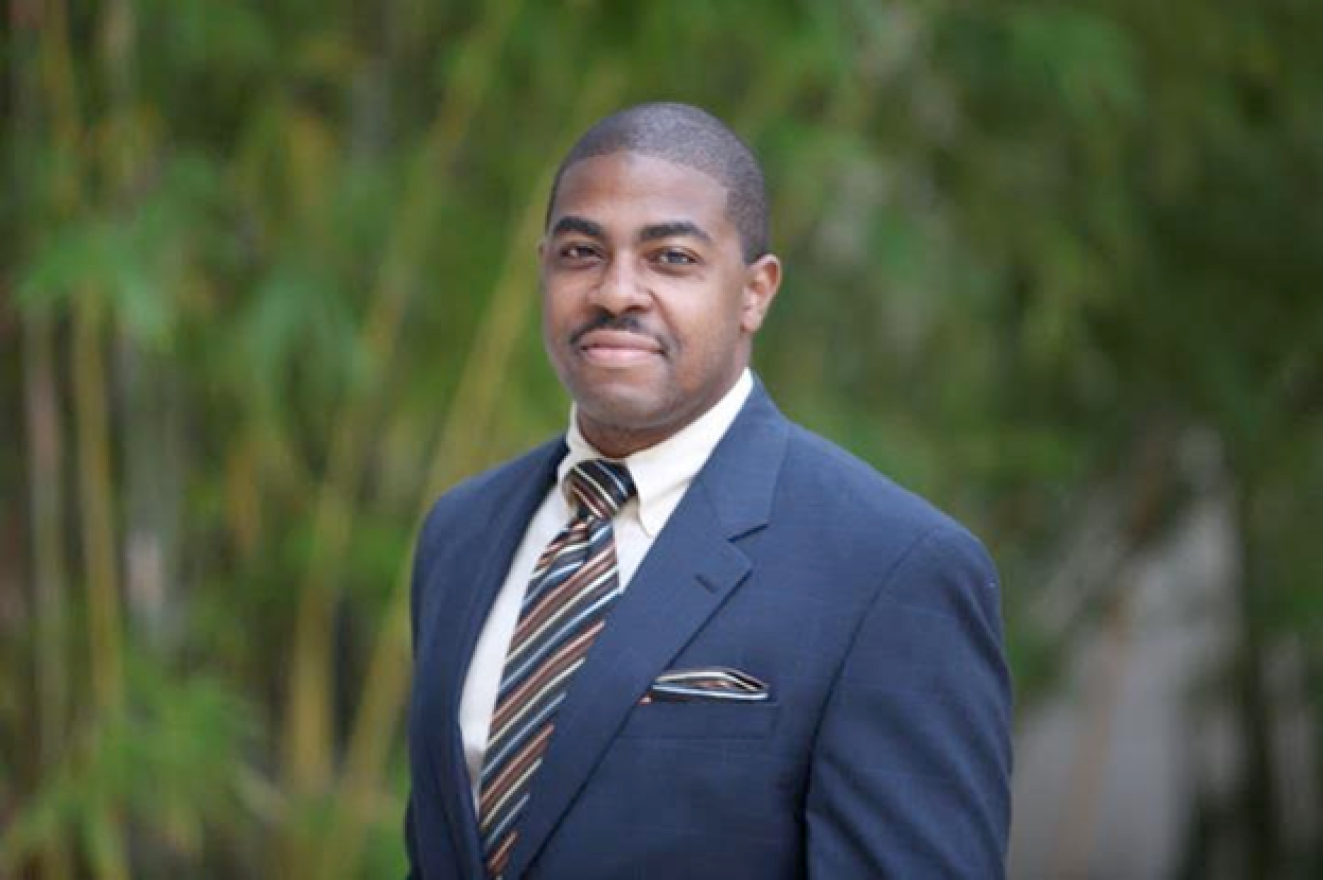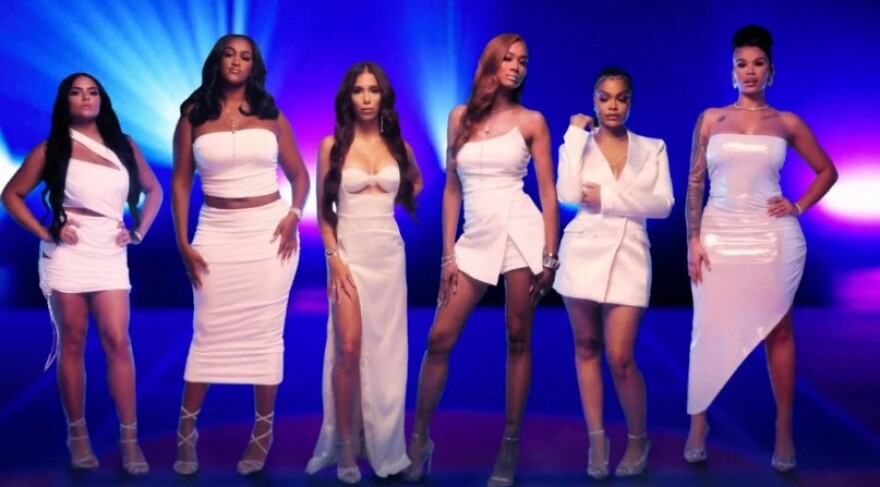VH1’s Basketball Wives is bringing the franchise to the City Beautiful.
Basketball Wives Orlando made its premiere Monday, October 9.
The reality television show follows 9 women from Orlando who are either a wife, ex-wife, or girlfriend of an NBA player.
Randall Croom is an Associate Professor of Management at Stetson University.
He said the show could have significant impacts on our economy.
Listen to the full conversation in the player above.

Randall Croom: There are a few things to think about. So one of the things that we have is Film Florida. They have gone through and encouraged various counties and municipalities to provide incentives for people to film here, TV as well as traditional film, digital medium. When you go though you to their website, you'd find that several counties in Florida including Miami-Dade, Hillsborough, Broward County, Duvall, Pinellas, and Palm Beach, all have incentives to support the film industry. However, most Central Florida counties do not, including Orange County, Seminole, Volusia, all around there. So all of these other counties seem to recognize that there is real incentive to getting people to come. However, there is some room to grow, perhaps, in terms of incentivizing people.
Talia Blake: Local businesses will be featured on the show when the show goes to visit them while they're filming. I'm wondering, do they usually become more popular among people in a given city after they're featured on the show?
Randall Croom: I tried to look into this a lot and it seems like there is a mixed bag. On the one hand, there are many companies, many businesses, many small business owners whose businesses or services are featured on a reality television show and suddenly there is a quick spike in sales or demand, which as great as it is, can actually be a little bit problematic for businesses that aren't quite ready for that. What I also have found is that in many previous iterations of reality shows, including ones like Real Housewives, the biggest benefit was to business people who were on the show. Take as an example of incredible success, Bethenny Frankel and her Skinny Girl Margarita line that really became quite successful. But there are also times where we see people starting businesses on the show and they tend to struggle a little bit more. One example was Sheree Whitfield on Real Housewives of Atlanta, who was starting SHE by Sheree at the time, and there were some challenges and difficulties, but it was still entertaining. People still enjoyed even seeing the struggle, but it might not have benefited her business quite so much. One other thing, there is a considerable amount of research and data out about the value of tourism as relates to reality television shows. This too is a double edged sword depending on the place. In some cases, you find that people visit places that they never would have visited before. When they tend to be smaller areas, more remote areas, and more natural areas that can come with problems as the place gets overwhelmed with people. But in other cases, things seem to be of great benefit. So, if you have the capacity to accommodate an influx of people, then certainly being featured on a reality television show can be an incredible boom for you.
Talia Blake: Yeah, it sounds like it's gonna be a little bit of a mixed bag for businesses here in Orlando after Basketball Wives airs. Earlier you had mentioned Film Florida and the Orlando Business Journal reports that Film Florida, which is the Kissimmee based advocate for Florida's TV, film and digital media industry, is seeking to tap into Orange County hotel tax collections to bring big budget movie productions back to the region and big budget productions like The Waterboy starring Adam Sandler that was filmed right here in Florida. If they're successful, how could that impact the economy and job market here?
Randall Croom: I'm glad you mentioned Waterboy because parts of it were filmed on Stetson University's campus. I'm very, very pleased that you mentioned that. In terms of affecting things here if they're successful, almost every major city needs multiple bases of economic growth and development. So a big part of where we are in Central Florida is already related to tourism and by extension entertainment. So in terms of sort of diversifying the portfolio of offerings our city and our area has, if Film Florida is successful in recruiting more productions here, I think that will have follow on effects that will be particularly beneficial in terms of developing jobs. Educational opportunities here like Full Sail University, like other places that are focused on studio makeup, film production, these sorts of things, the infrastructure is already here in such a way that it gets support some of those industries. So there's a community in South Carolina called Grand Strand. and there was a reality TV series called Trailer Park: Welcome To Myrtle Manor. It turns out that it had a tremendous positive financial impact on the area. The South Carolina Film Commission, much like Film Florida, keeps track of some of these things, as well as the Department of Parks and Recreation and Tourism. They estimated that, not including salaries, the economic impact was about $1.5 million. This was a smaller kind of show that had meaningful impact for the community in which it was filmed. But one of the maybe underrated parts of it is how it impacts the way people who currently live in the city or an area see the area in which they live. So we have a lot of great things just in our backyard here in Central Florida, and sometimes it takes seeing them through a different lens, if you will, to appreciate those opportunities and say, 'I passed by that restaurant every day' or 'that park is not too far from my house. Why don't I stop by? And check that out?' Not to mention that in large cities like Los Angeles, some places become known as places that celebrities tend to frequent and people will go just for the chance of seeing a celebrity sighting. It's very possible that depending on how Basketball Wives Orlando goes, where it shoots, what restaurants are featured or activities that some people might begin to hang out there just so they might see one of the Basketball Wives hanging out enjoying a nice cocktail or having a, we'll call it a passionate discussion.
Talia Blake: I'm curious about whether shows like this cause regular people in a given area to overspend because they want to have the designer bag or go to the most exclusive restaurant or spa or whatever it may be that they saw on the show?
Randall Croom: It's tough to say because I consider this to be perhaps idiosyncratic. Not everyone views reality television positively. There have been business owners and local citizens who have not enjoyed the way their city was portrayed on a given reality show. I happen to be from Birmingham, Alabama, and the First 48 is regularly filmed there. So there's going to be quite a bit of variability there. Although, I do imagine that some people will see something that they like, or admire or connect to, but other people may just as equally be turned off by something they see and therefore choose to disconnect with it.
Talia Blake: Speaking of being turned off, is there a downside to showing the glitz and glamour part of an area versus the whole picture on TV? Obviously, Orlando is a great area, but it's not all glitz and glam and Disney World. So is there a downside to that?
Randall Croom: There are a couple of things to think about. One, from a business perspective, of course it's wonderful for your place to look appealing for people to not only travel to, but to choose to live in. I think in Orlando's case, in particular, the identity of Orlando is greatly connected or strongly connected with Disney, with family vacations, and such. Other parts of Florida, people think about the beach or other things connected. I do think there's going to be some value to showing what it is actually like to live in a place like Orlando for people who aren't here for the touristy things, but who are just having a day to day real life experience. So I don't know. I think that the positives probably outweigh the negatives.
Talia Blake: Following up from that. Yes, we will see, in a way, how regular people to an extent Live in Orlando, but these are still Basketball Wives. They're still making well above what maybe the average Floridian is making. So is there a cost to that perception, even though that's not how everybody who lives on their day to day in Orlando is living. In Orlando, we're dealing with affordable housing issues, we're dealing with high food costs, so is there a downside to that part of it?
Randall Croom: Yes. So there is good reason to remember that the stars of Basketball Wives, and really at most reality television shows, are not representative of the broader population. In fact, Bess Freedman who is the CEO of a brokerage, Brown Harris Stevens, talks a lot about how, for example, in reality television shows focusing on real estate, think Selling Sunset or Million Dollar Listing, that they have been, in her words 'horrible' for the perception in the image of what real estate agents and brokers look like. They see a lot of sort of competition and infighting, in ways, because the drama is necessary for the show. But even beyond that, it's also important to remember that even though the women on the show are not necessarily representative of the larger population in Orlando, they also may not be representative of other spouses of professional athletes. One small thing, which is the idea of parasocial relationships. So sometimes when we see someone, whether it's on reality TV or Instagram, we know more about them than they will know about us, and you might even feel like you know them a little bit. That's what makes it a parasocial relationship. But it turns out that there are some real implications for celebrity endorsements. So as you think about economic impacts, some of these parasocial relationships, people that you will feel like you know because they come into your home every week on VH1 or because you now follow them on Instagram, or X, formerly known as Twitter. I'm still calling it Twitter. You may be motivated or moved or inspired to purchase something that they use or spend money on experience that you see that they've had because there's a deeper closer relationship with this parasocial relationship than it might be for some traditional celebrity endorser. There's also going to be probably really good opportunity for local businesses to engage in some endorsement, because there's this idea that you know the audience that is watching this particular show that lives in Orlando will have the ability to go out and and connect. If you think about it, most local restaurants, gyms, massage partners, estheticians, or whoever else will never get to run a national commercial. So this is an opportunity, even there, to make sure that the reach and the depth of the exposure to your product, as well was the depth of the connection you have to the person that's exposing it, gets seen shown highlighted.
Talia Blake: It sounds like this is going to bring a lot of opportunity for local businesses in the area.
Randall Croom: I'll be watching.
Talia Blake: I will as well. Randall Croom, thank you so much for joining me today.
Randall Croom: Thank you. I really appreciate you.
(video courtesy of VH1/Reality TV Overdose)





